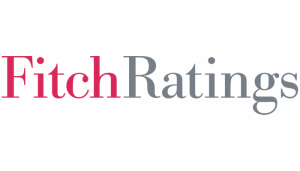Hannover Re, Munich Re, SCOR and Swiss Re all reported lower earnings for 2022 as high inflation, rising interest rates and climate-related costs led to lower underwriting and investment results, suggests a new report from Fitch Ratings.
 The rating agency notes that in 2022, attempts to raise prices proved to be insufficient to compensate for higher-than-expected claims inflation.
The rating agency notes that in 2022, attempts to raise prices proved to be insufficient to compensate for higher-than-expected claims inflation.
This was the result of major losses related to weather events and the war in Ukraine often exceeding budgets, alongside record inflation requiring reserve strengthening for more recent underwriting years; and higher interest rates leading to lower fair values for all major asset classes, Fitch explains.
Nearly all major European reinsurers reported worsened combined ratios in 2022 for their P&C reinsurance business units.
Though, Munich Re manage to avoid this trend, disclosing an improved combined ratio due to the size and diversification of its non-life reinsurance book.
SCOR showed the largest deterioration in underwriting results as it was affected over-proportionately by the drought in Brazil and nat cat losses in France.
According to Fitch, SCOR’s strain from insufficient reserving levels was also the highest amongst the major four. Reserve strengthening added 6.2% to its reported combined ratio, well above the 1.8% at Swiss Re.
Meanwhile, Hannover and Munich Re were able to reallocate existing reserve buffers to improve reserving levels in those lines of business most affected by the strong rise in inflation.
In P&C reinsurance, both Munich Re and Hannover Re booked 1.5% of net earned premiums (NEP) as claims and claims reserves for the conflict in Ukraine, SCOR set aside 1.1%, and Swiss Re 0.8%.
The underlying technical result, which Fitch states is measured by the normalised combined ratio and adjusts for major losses and prior-year reserve movements above or below budget, also worsened in 2022 for all major European reinsurers.
However, the rating agency anticipates that combined ratios will improve by 400bp in 2023 on the back of better pricing, tighter terms and conditions, as well as war exclusions from many renewed contracts.
The capital position of the big four remained very strong in 2022 due to a varying mix of increases in subordinated debt capital, a positive correlation of solvency ratios to higher interest rates and lower investment risks.
Fitch also expects that the four major reinsurers will take advantage of the current healthy price environment to bolster their reserving to pre-2022 levels.
The momentum of reinsurance price increases across large parts of the business that were up for renewal in January 2023 accelerated significantly compared with 2022.
Property lines of business and those specialty lines affected by the war in Ukraine showed the highest premium rate improvements.
The rating agency concluded that a hard market environment with better prices and terms and conditions will help to improve underwriting margins in 2023, while macro-economic uncertainty, financial market volatility, as well as rising natural catastrophe claims will remain challenges this year.
Thus, it maintains its neutral sector outlook for the global reinsurance sector.


